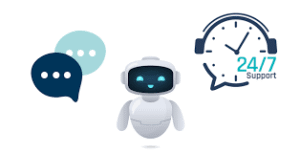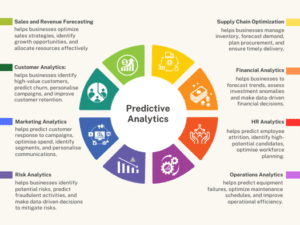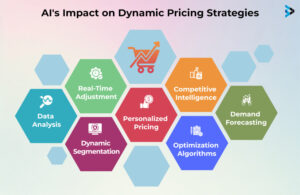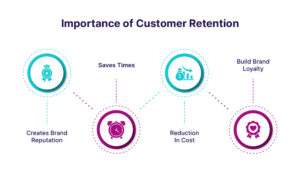Introduction
Small and medium-sized businesses (SMBs) are under more pressure to provide customized customer experiences, just like large companies. With artificial intelligence (AI) in their hands, SMBs can utilize intelligent tools to form improved customer relationships, personalize experiences, and enhance overall satisfaction. Whether it’s email automation, chatbots, or predictive analytics, AI is transforming the way businesses interact with their audience. This post explores key strategies for SMBs to implement AI-powered personalization in an effective way. With proper understanding of the potential of AI and the right tools, small businesses can compete on a better level and attain sustained growth.
The Role of AI in Personalization
What is AI-Powered Personalization?
AI personalization is an exercise of utilizing machine learning, data analysis, and automation in creating personalized experiences for each customer. Unlike personalization done manually, AI allows for real-time processing of data so that companies can understand the behavior, taste, and trends of customers in real-time. This gives rise to extremely contextual and timely interactions, from product recommendations to targeted marketing campaigns.
Why It Matters for SMBs?
Personalization is no longer a luxury, it’s a requirement. It is discovered through research that 80% of the customers would most probably purchase something if brands were providing them with a personalized experience. For SMBs, this provides a great opportunity to achieve customer loyalty and top-line growth. Personalization is scalable, cost-effective, and easy with AI.
AI Strategies to Personalize Customer Interactions
1. Use AI Chatbots for 24/7 Support

AI chatbots offer real-time support to web users, assisting them in service navigation, answering questions, and even suggesting products. This not only enhances the customer experience but also lightens the load of human agents.
Benefits:
Instant response time
Processes multiple queries at a time
Improves over time by learning from customer interactions
Best Tools: Yellow.ai, Haptik.ai, ZingBot
2. Apply Predictive Analytics to Anticipate Customers’ Needs

Machine learning algorithms can analyze previous data to predict future customer actions. This can assist in developing improved offers, predicting questions, and actively forecasting concerns.
Use Cases:
Issuing restocking reminders based on purchase history
Providing upsell products during checkout
Noticing potential churn and taking measures to prevent it
3. Personalize Email Marketing Campaigns

Email is still. One of the strongest marketing tools, and AI makes it even stronger by allowing dynamic content personalization.
How to Use:
Segment email lists by behavior
Use AI to decide on best send times
Personalize subject lines and content based on customer preferences
Top Tools: Mailchimp with AI, Brevo (formerly Sendinblue), ActiveCampaign
4. Provide Personalized Product Recommendations

AI can leverage browsing history and buying behavior to suggest the correct products at the correct time, boosting average order value and customer satisfaction.
Implementation Areas:
Product pages
Checkout pages
Email campaigns
Examples: Amazon, Flipkart, and Myntra implement this strategy effectively, and now SMBs can do the same with platforms such as Shopify and WooCommerce plugins.
5. Implement Dynamic Pricing Strategies using AI

Artificial intelligence software assists companies with making pricing decisions by considering market trends, competitor prices, and customers’ willingness to pay.
Benefits:
Maximizes profits
Increases conversion rates
Maintains real-time competitive pricing
6. Improve Customer Retention Using AI-Based Feedback

AI-based feedback applications can scan sentiment analysis, customer reviews, and survey responses automatically and recommend improvements.
Principal Uses:
Monitor levels of customer satisfaction
Recognize product or service problems
Automatically send follow-up messages according to feedback
Overcoming AI Implementation Obstacles for SMBs
AI is not liked by most SMBs due to cost and complexity concerns. However, with present-day easy-to-use platforms and affordable prices, even small companies can begin without making enormous investments.
Tips to Begin With:
Begin with one or two tools
Plug-and-play AI platforms
Select tools with explicit ROI tracking capabilities
Real-Life Applications of AI in SMBs
A Local Fashion Brand: Employed AI chatbots to support customers on WhatsApp and Instagram, boosting conversion rates by 20%
A Bakery: Deployed AI-powered personalized emails, driving repeat orders by 35%
An Online Bookstore: Incorporated AI-powered recommendations, enhancing average cart value by 40%
Conclusion
AI has opened the door to a new era of personalized customer interaction for small and medium businesses. With the introduction of AI methodologies such as chatbots, predictive analytics, and dynamic email campaigns, SMBs can provide breathtaking personalized experiences that are on par with what the large businesses achieve. All one has to do is begin small, have the finest weaponry, and merely learn from consumers in a cycle that perpetuates. AI not only saves time and money but also leads to long-term relations that bring forth loyalty and business. Keeping up with AI personalization, as technology matures, will become a prerequisite for any SMB trying to see it through in the long term.
FAQs
1. Is AI too costly for small businesses?
Not anymore. Many affordable AI tools offer flexible pricing for SMBs.
2. Can AI replace human customer service?
AI can handle basic tasks, but human support is still essential for complex issues.
3. How long does it take to see results from AI personalization?
Businesses often start seeing improvements in engagement and conversions within a few weeks.
4. What industries can benefit from AI personalization?
Retail, healthcare, finance, hospitality, and nearly all sectors can reap the benefits.


